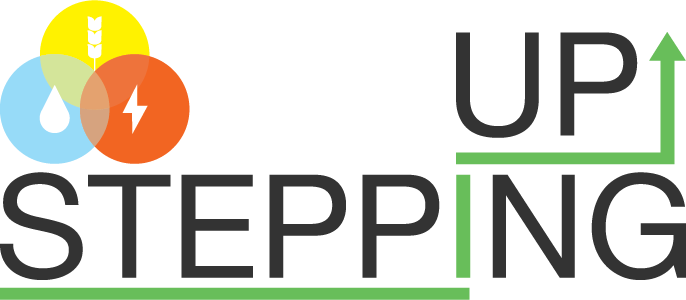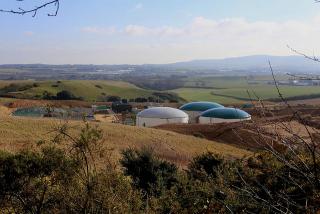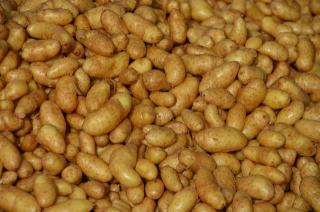You are here
The role of innovation and case studies in Stepping Up: The reduction and repurposing of waste

One important part of the work that Stepping Up will undertake is the identification of people or organisations who are currently innovating around the use of technologies and/or ways of doing things. Case studies of actors’ experiences with these innovations will help us to understand specific projects and their outcomes, with particular emphases on whether or not they might be considered ‘successful’ in terms of advancing nexus goals, helping us move towards a more sustainable future, as well as whether and how they might be scaled up.
While the range of nexus-relevant innovations out there is staggering, and many are worthy of exploration, at present the project team has settled on four innovations to explore further: anaerobic digestion, insect protein, valorisation of waste and the diversion of food from waste streams to people’s plates.
The production and consumption of food is one of the most significant contributors to climate change today. Future predictions of population growth to 11bn by 2100 and the “Westernisation” of the global diet to include more meat, means that by 2050 we will almost be blowing our carbon budget (as outlined by COP21) in growing food alone. Coupled to this the myriad issues of soil degradation through intensive farming practices, the fact that 70% of our water use is in agriculture and that 30% of food is wasted, the food production system will shortly come under (even more) significant stress. Attention is increasingly turning to alternative sources of protein, what to do with food waste and how to minimise it, hence the choice of innovations.
Anaerobic digestion
Anaerobic digestion (AD) is a technology in which the biodegradation of organic matter without oxygen produces methane and a solid co-product rich in fertiliser nutrients. It is an increasingly attractive prospect for dealing with food waste and slurries from animal farming, although there are sustainability questions around the use of dedicated crops for AD.
Insect proteins
Insects offer a rich source of protein and can happily feed on food waste. They are one of the most efficient converters of feed into protein and can be consumed both by humans and animals. There is an increasing interest in using them to supplant animal protein for human consumption or the huge quantities of soy which are imported to feed animals during winter (soy all too often being grown on land cleared of rainforest).
Valorisation
Valorisation of waste is a term used to describe extraction of valuable nutrients from waste streams prior to disposal, for example, the extraction of protein from potatoes rejected upon harvesting due to aesthetic standards set by supermarkets. By extracting nutrients prior to disposal treatment, they may be returned to the food chain directly and more quickly, following circular economy practices and typically leading to reduced environmental impact.
Redistribution of surplus food
Finally, the diversion of food from a potential waste stream to people’s plates is exemplified by charities such as FareShare. The interception of food that is perfectly edible before it is thrown away is a great example of closing the loop on a waste stream: how much extra food would need to be grown to feed those same people if it were not diverted from waste?
These innovations are linked by the common theme of waste, which can simultaneously be considered both a burden and, increasingly, a resource. While the production of some waste is inevitable, reducing the amount of waste we produce could significantly reduce environmental burdens, both up and downstream. Developing new markets and supply chains to repurpose waste streams has the potential to address nexus-related challenges in different ways.
In the context of increasing resource scarcity and rising greenhouse gas emissions, these particular innovations have the potential to offer insights into the development of new resources across a number of applications. Building case studies around those innovations will offer us interesting insights into technical, systemic, production driven and consumer driven practices of innovation at different levels of maturity. We will be able to explore how issues of governance (policies, politics, institutions and behaviours) relate to the generation and effective utilisation of waste, currently, and under a range of future scenarios. And finally, given how supply chains for waste are expanding, we can explore the impacts, both positive and negative, the scaling up of innovations has on addressing nexus goals.
©Steppingup 2024



